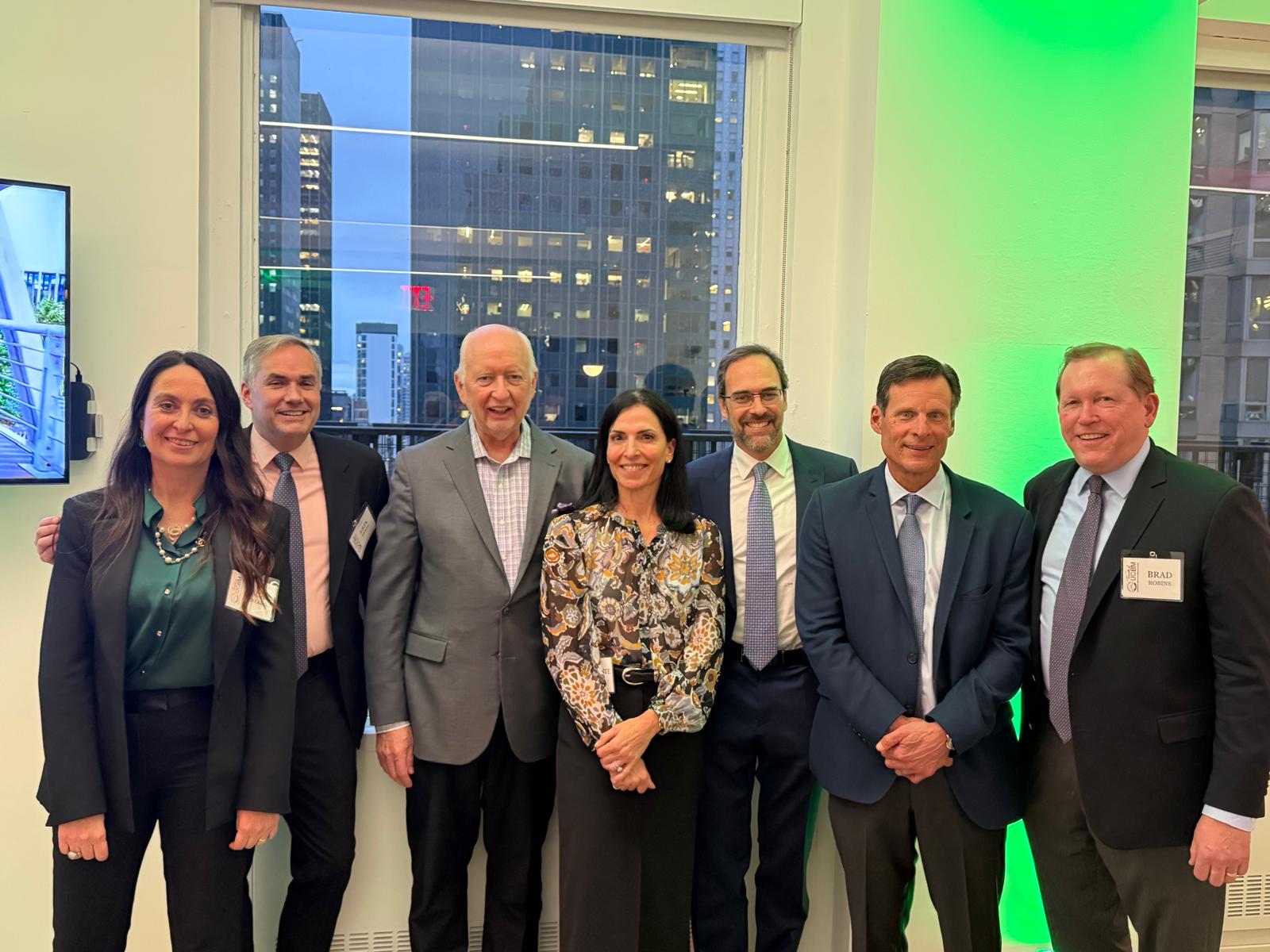On Monday, April 7, in a sunlit room at 155 East 44th Street in New York City, overlooking the steady rhythm of Midtown Manhattan, a deeply intentional gathering took place—a moment that marked the expanding presence of the Biomedical University Foundation, based in Rome, and its American counterpart, Friends of UCBM, in the United States.
Born from a shared commitment to support the mission of Campus Bio-Medico University of Rome—a mission grounded in education, scientific research, and healthcare, but always shaped by the human dimension of care—the Foundation and its partners have been steadily building something larger than a support structure: a community defined not only by expertise, but by empathy, shared purpose, and a sense of responsibility toward others.
The evening, hosted by Jim McCann, founder and chairman of 1-800-Flowers, brought together an intimate network of alumni, professionals, supporters, and friends, in an atmosphere that was informal but not improvised—rich in conversation, connection, and a quiet but unmistakable sense that something valuable is growing across borders and across generations.
Alessandro Pernigo, President of the Biomedical University Foundation and Vice President of the University itself, spoke not with fanfare but with the kind of clarity that draws people in—describing a vision of education that forms academically excellent students who are also capable of listening, understanding, and responding to the needs of those they serve, not only with knowledge and technique, but with presence and compassion. “To form professionals who are competent and rich in values,” Pernigo said, “is not a slogan—it is an authentic mission”.

Tom Cox and Bradley Robins, respectively President and Secretary General of Friends of UCBM, alongside fundraising consultant Erik Dyson and others, have been helping guide the University’s growth beyond Italy, into a broader global ecosystem of institutions and individuals committed to human-centered care.
But the conversation did not only look forward. It also made space for memory—naming the figures who shaped the University’s earliest steps: Joaquín Navarro-Valls, who first saw the need for a foundation that could bring science and conscience into dialogue; the family of legendary Italian actor Alberto Sordi, who donated the land on which the current Campus now stands–making possible a center for research and care dedicated to elderly populations–as was in keeping with the late actor’s wishes; and the enduring support of leaders like Paolo Arullani, Gianni Letta, Giovanni Malagò, and Luisa Todini, who make up a high-level Advisory Board that contributes not only its prestige but its conviction.
Looking ahead, the Foundation announced its upcoming Fall Trip, scheduled from October 10 to 12, which will offer participants a unique opportunity to experience both the Jubilee and the Campus from within—three days immersed in the intellectual, spiritual, and cultural life of the University, including Masses celebrated in chapels usually closed to the public, private visits to the Vatican Museums, shared meals steeped in Roman tradition, and the rare sense of encounter that emerges when sacred spaces and civic life converge.
Those who have joined in the past describe it not as a tour, but as a kind of modern pilgrimage—an experience that nourishes not only affiliation, but meaning. What is emerging between the clinical wings of Trigoria and the glass towers of Manhattan is not simply an expansion strategy or a new fundraising platform. It is something more hybrid, more ambitious: a model of education and care that emphasizes that professional excellence and personal integrity are not parallel paths, but deeply intertwined—that the future of medicine, science, and leadership will depend not just on competence, but on the ability to stay present, to listen, and to act with intention.












